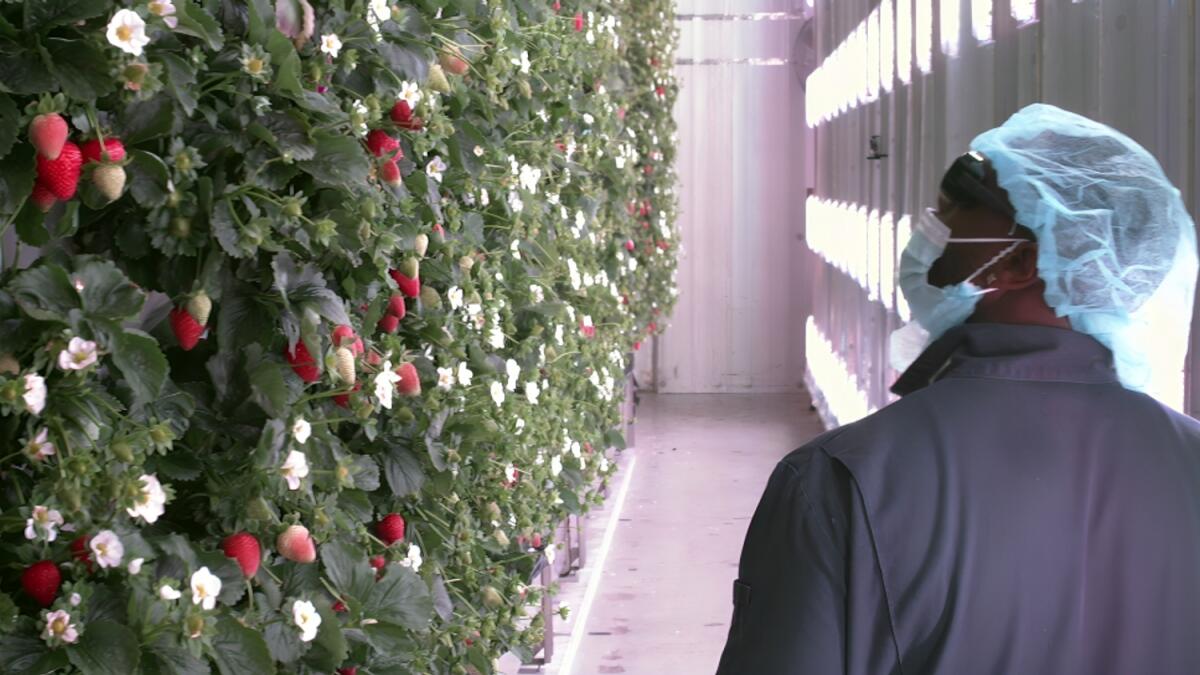Abu Dhabi is set to establish a 7,500 square meter indoor vertical strawberry farm, the first of its kind in the region. This project aims to promote sustainable agriculture and local production in the UAE. Mawarid, a subsidiary of Alpha Dhabi Holding, has partnered with California-based farming firm Plenty to create this innovative farm outside North America. The joint venture is focused on advancing food security in the UAE and the region by utilizing cutting-edge technology.
With an investment of Dh500 million, the Abu Dhabi project is the first of five farms planned for the next five years. The farm is expected to produce over 2 million kg of strawberries annually and may expand to grow other crops in the future. Advanced technologies such as artificial intelligence, LED lighting, and proprietary software will be employed to optimize growing conditions and enhance flavor and quality. The decision to produce strawberries in the UAE was based on market demand and the unique year-round production capabilities of Plenty.
The project will create numerous job opportunities across various functions in the farm, including management, operations, production, maintenance, and quality control. Approximately 100 direct jobs are expected to be generated for each farm, with additional indirect jobs through the supply chain and distribution partners. The sustainability benefits of vertical farming technology include significantly less land and water consumption compared to traditional farming methods. This approach supports the UAE’s food security and sustainability goals by providing a stable, year-round supply of fresh produce with reduced transportation emissions.
Vertical farming helps reduce transportation emissions, lowers CO2 footprint, and increases food freshness by growing produce closer to urban centers. This initiative aligns with the UAE’s National Food Security Strategy 2051 and the Agrifood Growth and Water Abundance cluster (AGWA). The aim is to offer premium strawberries with peak-season flavor grown locally year-round, enhancing food security and sustainability in the region. By leveraging advanced farming technology, the project contributes to the country’s efforts to enhance local food production and reduce reliance on imports.










